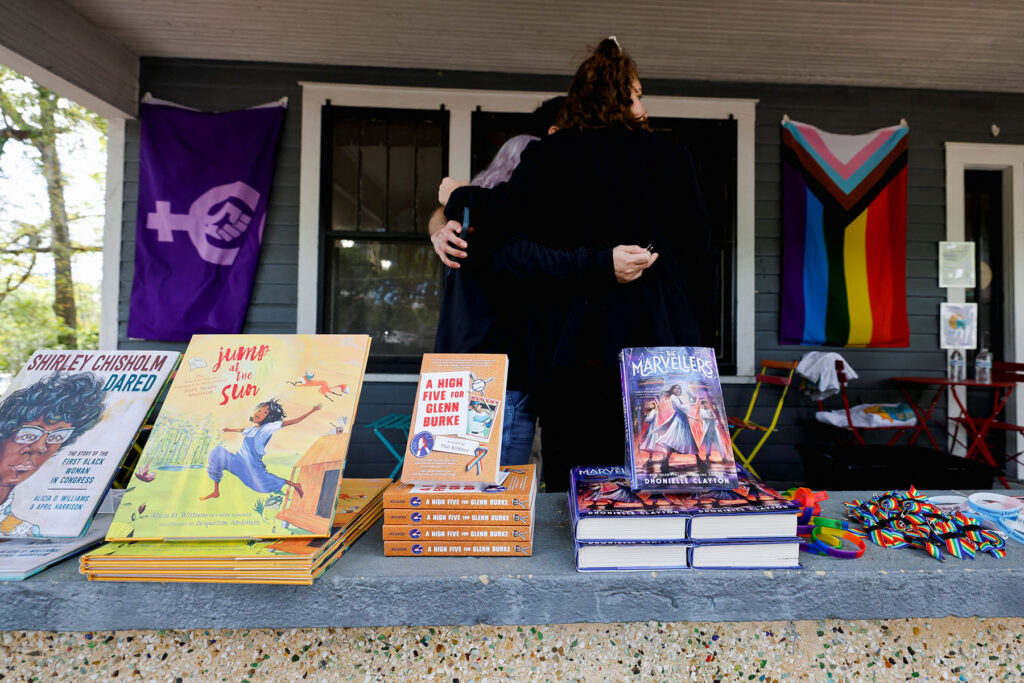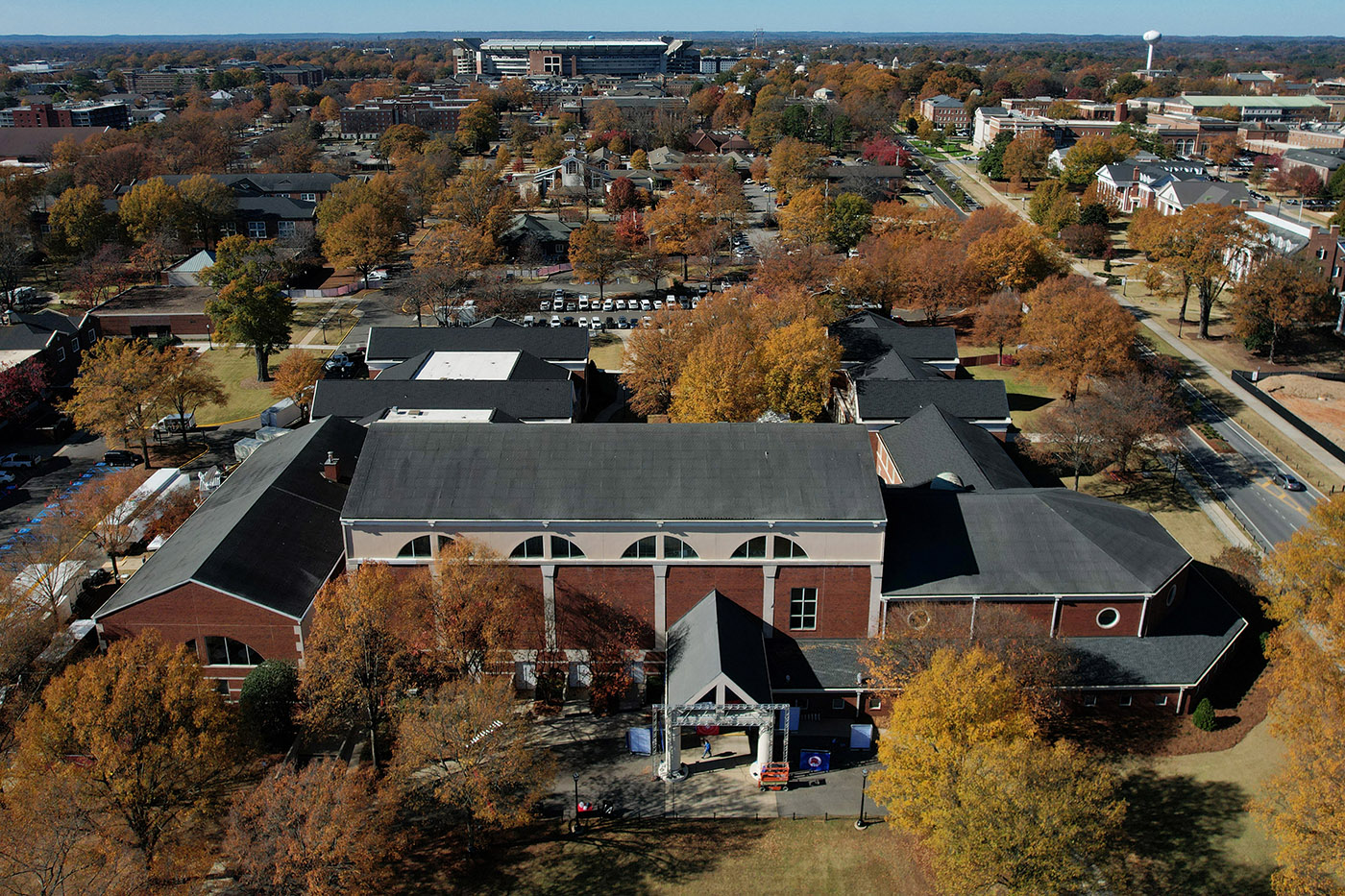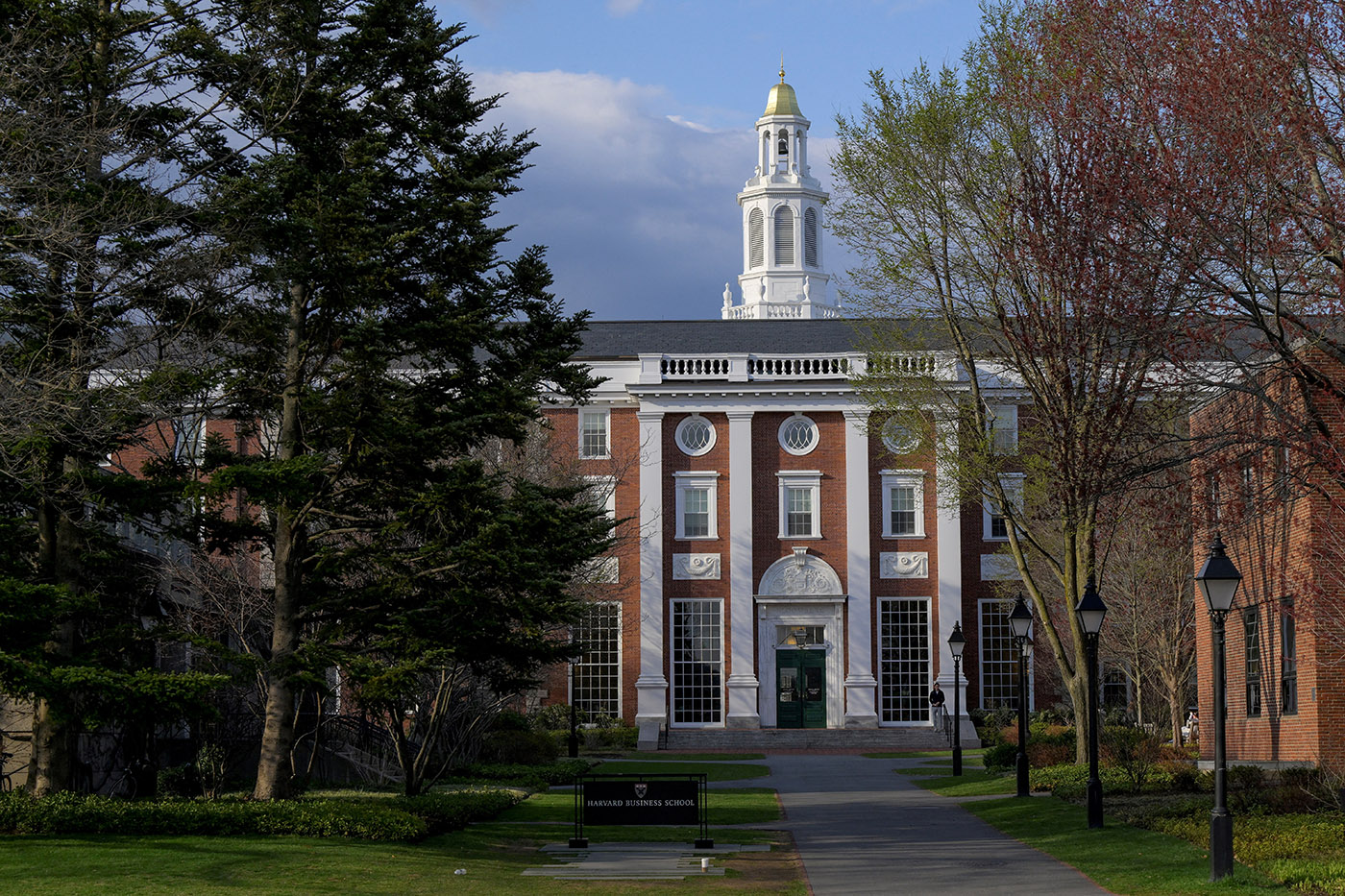Book bans have been surging across the country, but in Florida, school boards across the state have been purging their shelves following the direction of Gov. Ron DeSantis.
PEN America’s Index of School Book Bans documented titles across the country that have been banned or challenged between July and December 2022, found that there have been 1,477 occurrences of books banned from school libraries and curriculums, affecting 874 specific titles.
Florida has the second-highest number of bans with 357, trailing Texas. But, the state does have the highest number of districts that have banned books, according to PEN’s April report “Banned in the USA: State Laws Supercharge Book Suppression in Schools.”
“These bans are driven by a confluence of local actors and state-level policy,” the report stated. “The implications of bans … are far-reaching, as policies and practices are modeled and replicated across the country.”
Districts across the state have specifically removed LGBTQ and race-centric books.
According to PEN’s index, during the six-month study period 30% of the titles banned focus on race, racism or “feature characters of color;” and 26% of titles banned “have LGBTQ+ characters or themes.”
Previous: An Unprecedented Uptick in Book Bans Brings First Amendment Scrutiny
In Board of Education, Island Trees Union Free School District v. Pico (1982), the Supreme Court’s majority opinion stated that school libraries have “special characteristics,” making “that environment especially appropriate for the recognition of the First Amendment rights of students.”
“Local school boards may not remove books from school library shelves simply because they dislike the ideas contained in those books and seek by their removal to ‘prescribe what shall be orthodox in politics, nationalism, religion, or other matters of opinion,’” the majority opinion stated.
Pico decided that a school board does have limited discretion over what materials are available in its schools, but the motivation behind removal may only be based on “established, regular, and facially unbiased procedures for the review of controversial materials.”
Gov. DeSantis signed three laws which push back against the precedent set in Pico, and has spearheaded the effort to restrict access to certain reading materials in public school classrooms.
But Gov. DeSantis, in a March news conference, stood behind an “Exposing the Book Ban HOAX” sign, and argued that the state was only trying to protect students from obscene material. During the news conference, DeSantis used “Gender Queer,” by Maia Kobabe and “Flamer,” by Mike Curato, as examples of books that include sexual references. In one Central Florida school district, Volusia County Schools, “Flamer” is the only book that’s been removed from all the district’s school libraries.
“This idea of a book ban in Florida, that somehow they don’t want books in the library — that’s a hoax,” DeSantis said. “And that’s really a nasty hoax, because it’s a hoax in service of trying to pollute and sexualize our children.”
“Don’t Say Gay” Bill
The Parental Rights in Education bill — or House Bill 1557 and widely dubbed the “Don’t Say Gay” bill — was signed into law by DeSantis in March 2022 and bans instruction on sexual orientation and gender identity in kindergarten through third-grade classrooms.
“In older grades, these topics must be delivered in an ‘age-appropriate’ or ‘developmentally appropriate’ way, and only in accordance with state standards,’” PEN America’s Lisa Tolin reported. “Whether the law applies to school libraries or classroom libraries has been a source of confusion; yet teachers found in violation of the law risk losing their professional license.”
PEN America, along with Penguin Random House, select authors and parents of children enrolled in Florida’s Escambia County School District filed a federal lawsuit against the district and its board last month requesting 10 banned books and more than 150 others under review be returned to library shelves.
The lawsuit claims the school district violated the First Amendment by siding with those who express “openly discriminatory bases” for book challenges and has “disproportionately targeted books by or about people of color and/or LGBTQ people.”
Click Orlando compiled a list, which was updated May 19, of 10 school districts in Central Florida that have banned books, put them under review, or required students to have a parent’s consent for access. For example, in Lake County School District, three titles were removed from K-3 classrooms “as per HB 1557 due to sexual orientation/gender identification.”
The “Stop WOKE” Act
The Stop Wrongs Against Our Kids and Employees Act, coined the “Stop WOKE” Act by DeSantis, restricts gender and race-centric discussions and teachings in the classroom. The academic provision of the law is temporarily blocked from enforcement in public higher education, but in K-12 classrooms, the law still applies.
The law “codifies the Florida Department of Education’s prohibition on teaching critical race theory in K-12 schools,” according to a handout from the governor’s office.
The prohibited concepts that are central to the Stop WOKE Act’s academic clause are a result of the amended Florida Education Equity Act, which bans discrimination of students or public school employees based on demographic and personal information. But the eight new forbidden concepts would bar certain discussions and lessons that center around race, color, sex or national origin.
The concepts include promoting that one race, color, sex or national origin is morally superior to another; and the idea that because someone is of a certain race, color, sex or national origin they are “inherently racist, sexist, or oppressive, whether consciously or unconsciously.”
House Bill 1467
DeSantis signed House Bill 1467 in July 2022, which “mandates that schools maintain online databases of every book in their collections ‘in a searchable format,’ and that these books must be determined not to contain pornography or material deemed harmful to minors, according to a librarian or media specialist,” Tolin wrote.
CBS News reported that DeSantis signed the bill “as part of his Year of the Parent initiative that aims to give parents the right to make decisions regarding their children and their education.”
The law, which went into effect in January 2023, allows parents to challenge any materials that are selected and petition for their removal from schools.
In Marion County Public Schools, a district in Central Florida, 56 titles have been “quarantined” or are under review, meaning the books have been removed from circulation until a review decision is made; and seven titles have been removed from all district media centers and libraries.
The law also requires school librarians, and others who select titles to include in school libraries, to complete a training program before reviewing materials, according to a memo sent in June 2022 by Board of Education Commissioner Manny Diaz, Jr. to all school district superintendents.
The training encourages those reviewing materials to “err on the side of caution.”
Tags


